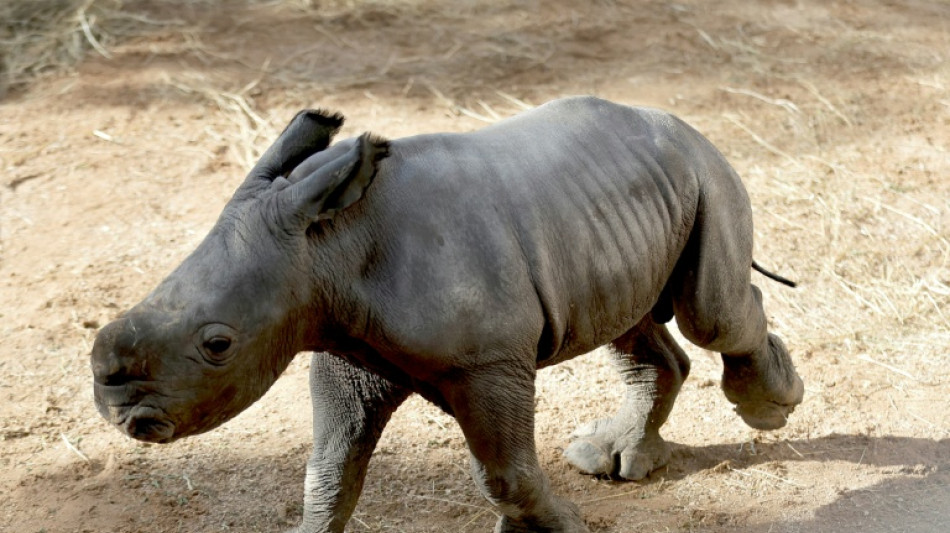

White rhino born at Spain zoo in conservation success
A southern white rhino calf has been born at a zoo in eastern Spain, in a success for a European programme aimed at preserving the threatened species.
After a 491-day pregnancy, mother Kwanza gave birth to the male calf in early November, the Bioparc Valencia zoo said.
The zoo released a video showing the birth and the jubilant reactions of caretakers who had long awaited the event.
"We are very happy because we tried both artificial insemination and natural breeding, and finally we succeeded," the zoo's technical director for animals, Loles Carbonell, said in the video, without explaining how the conception occurred.
It is the first birth of a southern white rhino at the zoo since it opened nearly 18 years ago.
The conception of the rhino was part of the European Endangered Species Programme, which aims to conserve populations of endangered species kept in European zoos, helping to ensure their long-term survival.
"This birth is very important for the international conservation programme, as this is a highly threatened species," said Raul Olmo, a member of the zoo's animal care team.
The calf, dark in colour with pointed ears, will be named through a public vote from a list of options proposed by the caretakers.
The International Union for Conservation of Nature currently classifies southern white rhinos, which are prized by poachers for their horns, as "near threatened".
The species is found almost exclusively in southern Africa. Females give birth to one calf roughly every 3–4 years.
M.F.Schmitz--JdB



